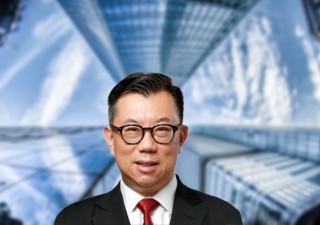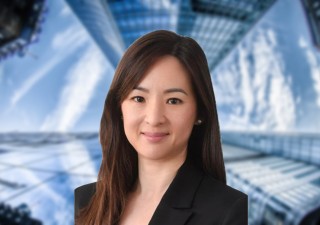Hong Kong Patent Examinations Could Mirror SIPO’s
10 August 2017

The examination guidelines under Hong Kong’s new patent system could be similar to those of China’s State Intellectual Property Office (SIPO), a senior official in the Special Administrative Region’s Intellectual Property Department (HKIPD) has hinted.
Passed by the Legislative Council in June 2016, The Patents (Amendment) Ordinance will introduce a original grant patent (OGP) system for standard patents, while retaining the current reregistration system in parallel. The OGP system will enable applicants to file applications for standard patents directly in Hong Kong, without first obtaining a patent in a designated foreign patent office.
The guidelines, which are still being drafted, will provide instructions on the practice and procedure to be followed by HKIPD’s examiners in conducting substantive examination of patent applications.
At a conference held by Baker McKenzie in Hong Kong, HKIPD assistant secretary (patents) Thomas Tsang said that the agency will “to a certain extent align with” the practice of SIPO in shaping its new procedures, while also drawing inspiration from the Intellectual Property Office of the United Kingdom as well as the European Patent Office.
“We will look into major jurisdictions to make sure that our patentability principles will be in line with major patent offices. But I must say that SIPO is one of the most important offices we will be looking into because under the current patent re-registration system, over 60 percent of the standard patents granted are based on patent grants in the mainland,” he said.
“So, to a certain extent we must align with or take into account the practice of SIPO, but that will not be the only office we will be looking into in shaping the procedures under the new patent system.”
Currently patent applicants are required to first receive a patent from a designated patent office either in China, the United Kingdom or the European Union before re-registering the patent in Hong Kong. Alternatively. applicants can apply for a short-term patent which only lasts eight years. Applications must be based on search reports from an international searching authority or one of the three designated patent offices.
In both cases, the registry will only conduct formality examination on the information required in the application form and the supporting documents. There is no substantive examination of the application (e.g. the novelty and inventiveness of the invention) and the registry does not search records of prior registered patents.
The new patent system will also introduce substantive examination to short-term patents. Owners of this kind of patent are required to request for substantive examination before commencing any enforcement action.
According to HKIPD, since Hong Kong lacks sufficient examiners with necessary technical expertise to conduct substantive examination, the work will initially be outsourced to SIPO, the patent office of China – a decision that has caused concern among some local practitioners.
In its submission to a public consultation, the Law Society of Hong Kong expressed concern that if substantive examination is outsourced to SIPO, it will give Chinese practitioners an “enhanced competitive advantage” over patent practitioners not qualified in mainland China. It pointed out that the Chinese government only allows China qualified patent agents to handle patent work and the qualifying examinations is only open to Chinese nationals (and in recent years to Hong Kong and Macau citizens of Chinese ethnic origin).
“Although we are going to enlist the assistance of SIPO in conducting substantive examination and training, Hong Kong is still under “one country, two systems,” Tsang said, referring to the constitutional framework that allows the territory to have its own laws and governance structure.
“Hong Kong’s patent system will still be different to that of China. One of the most important feature of the new patent system is that we are going to retain the re-registration system. Which means patents granted by SIPO, UKIPO and EPO will still be granted in Hong Hong.
“My team will certainly consult pactitioners while we draft the examination guidelines.”
Tsang also added that Hong Kong is a common law jurisdiction, which is different from mainland China. “Although we only have a handful of patent case law as to what the patentability requirement are for the courts to construe, the courts will also consider the decisions from other common law jurisdictions, such as the UK and Australia.”
Patentability of business methods and software-related inventions is also be a controversial topic as the HKIPD drafts its examination guidelines.
In China, a revision of patent examination guidelines has come into effect in April this year. Some practitioners have said that the move signalled a friendlier attitude of SIPO towards software and business method patents.
The new guidelines emphasize that only claims that “merely relate to... computer programs per se recorded in mediums” are not patentable as they fall into the scope of the rules and methods for mental activities. It is also stated that a claim relating to a business model shall not be excluded from patentability as long as the claim includes not only contents about business methods but technical features as well.
Tsang told Asia IP that the HKIPD will “study closely” the new SIPO guidelines.
“The common thread I can gather from relevant examination guidelines and case law is that the patent office would be looking for technical characters and the technical effect of the claim invention.
“Business methods and computer software as such are not patentable. But provided that the specification of the claim is well-written and able to satisfy the registrar that such invention contains solutions to resolve certain technical problems or have certain technical characters or features, that would potentially be patentable,” he said.
The Patents (Amendment) Ordinance 2016 was a result of a five-year review of the territory’s patent law by an advisory committee. The amendment will also implement an interim regulatory measure for local patent practitioners until a full-fledged regulatory regime is set up.
Tsang said that the Hong Kong government plans to introduce the new patent system in 2019.






